Overview
The Google Cloud Translation connector for Bizagi is available for download at Bizagi Connectors Xchange.
Through this connector, you will be able to connect your Bizagi processes to Google Cloud services that allow you to translate a text to any language and discover the language in which is written.
For more information about this connector's capabilities, visit Bizagi Connectors Xchange.
Before you start
In order to test and use this connector, you will need:
1.Bizagi Studio previously installed.
2.This connector previously installed, via the Connectors Xchange as described at https://help.bizagi.com/platform/en/index.html?Connectors_Xchange.htm, or through a manual installation as described at https://help.bizagi.com/platform/en/index.html?connectors_setup.htm
3.An account at Google services and a developer API key with Google Cloud Translation API activated.
Configuring the connector
In order to configure the connector (i.e its authentication parameters), follow the steps presented at the Configuration chapter in https://help.bizagi.com/platform/en/index.html?connectors_setup.htm
For this configuration, consider the following authentication parameters:
•Authentication method: Custom.
•API_Key: An API Key for a registered application as requested and managed at https://console.developers.google.com/.
Additional steps according to the mobile device (https://developers.google.com/mobile/add). For instance, for iOS development, you still need to carry out other steps described at https://developer.apple.com/membercenter/index.action).
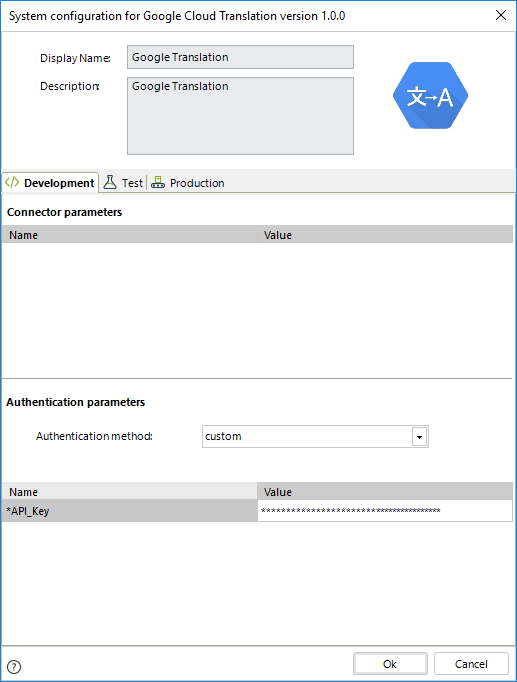
Using the connector
This connector features two available methods of Google Cloud services, oriented especially for dynamic translation.
To learn overall how/where to configure the use of a connector, refer to https://help.bizagi.com/platform/en/index.html?Connectors_Studio.htm.
When using the connector, make sure you consider the following details for the available methods.
Translate Text
This action allows you to translate a text to any of the supported languages.
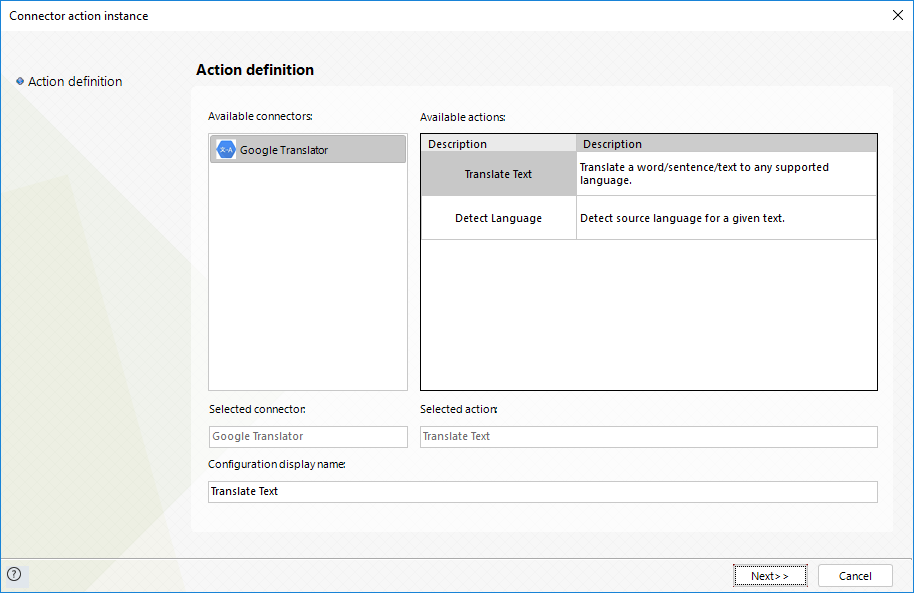
To configure its inputs, consider:
•OriginalTextForTranslation: the text to be translated.
•LanguageToTranslateTo: the language being translated to. Use the iso-639-1 code for the language (i.e., Use en for English, es for Spanish, pt for Portuguese, among others)
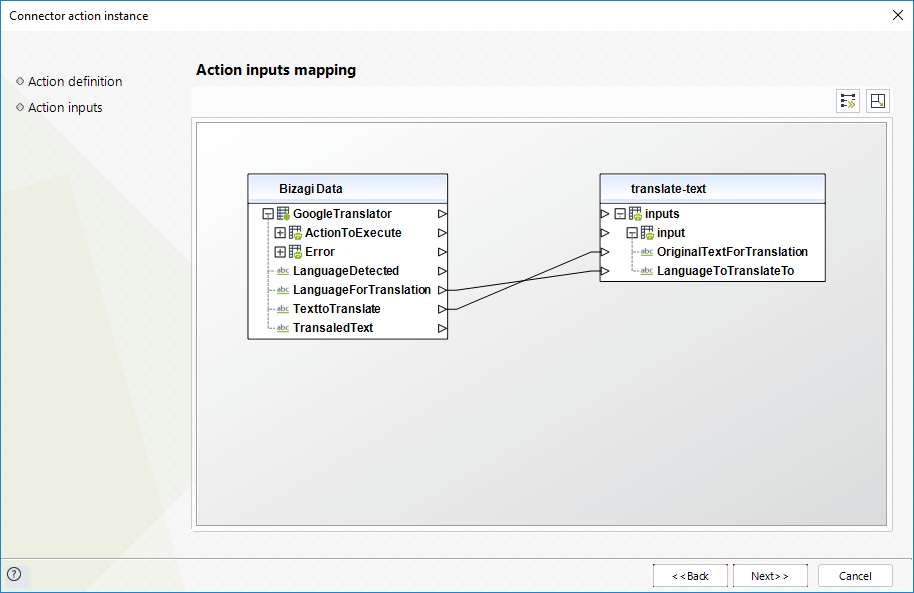
To configure its outputs when getting started and testing, you may map:
•TransalatedText: the text translated in the chosen language.
•LanguageDetected: the language in which the original text is written. This language is returned using iso-639-1 code (i.e., en for English, es for Spanish, pt for Portuguese, among others)
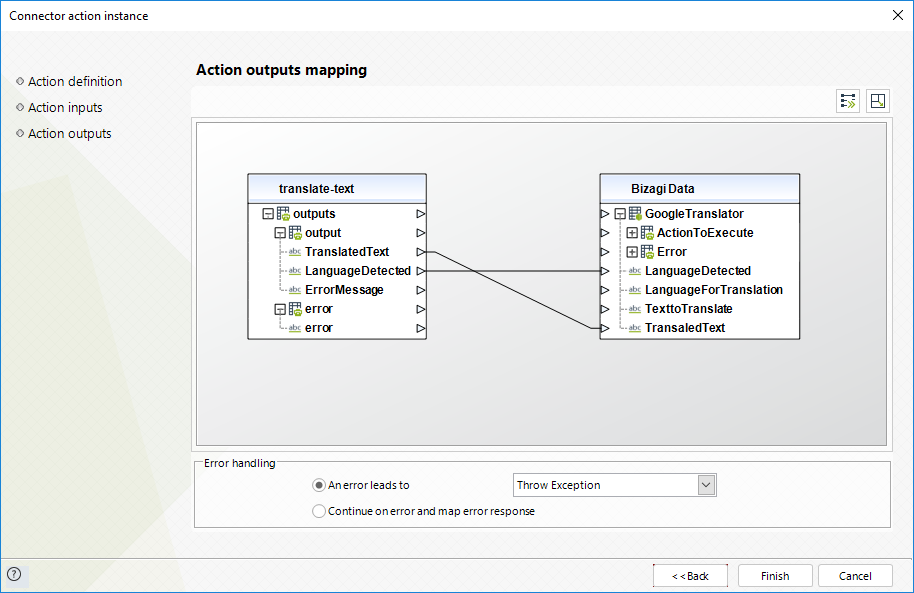
Detect Language
This action allows you detect the source language for a given text.
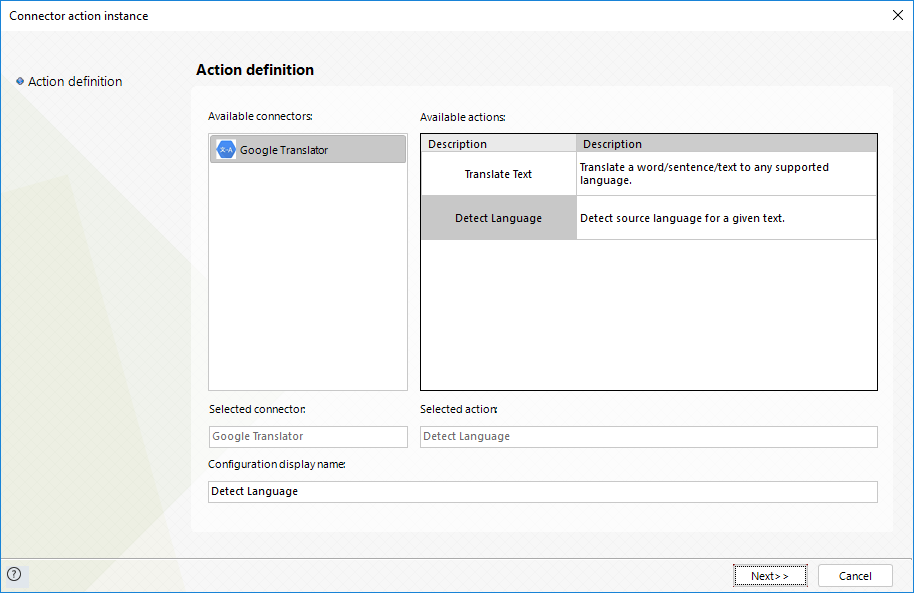
To configure its inputs, consider:
•OriginalTextForDetection: The text whose source language is required to know.
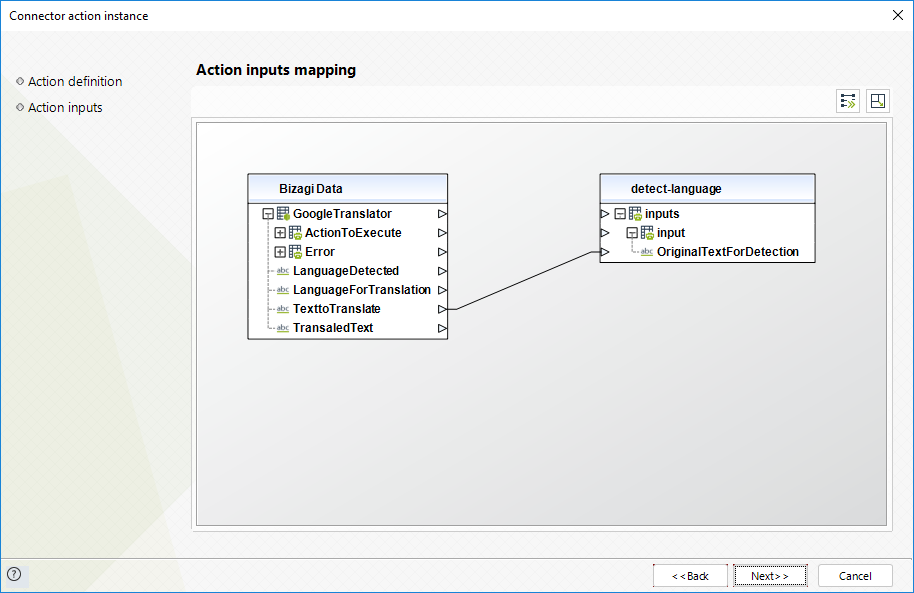
To configure its outputs when getting started and testing, you may map the LanguageDetected from the output. This language is returned using iso-639-1 code (i.e., en for English, es for Spanish, pt for Portuguese, among others)
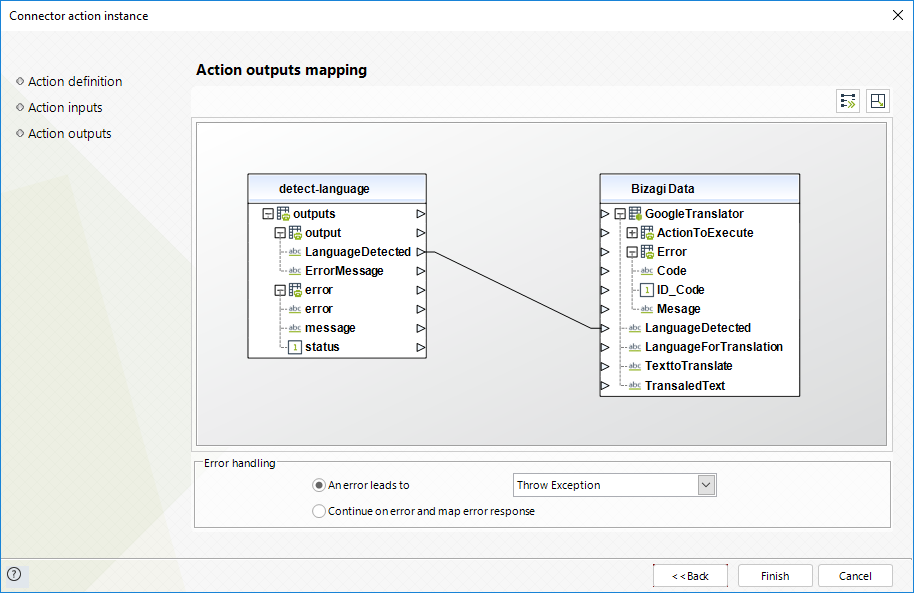
For more information about this method's use, refer to Google Cloud services official documentation at https://cloud.google.com/translate/docs/ and this connectivity library documentation at https://www.npmjs.com/package/node-gcm.
Last Updated 10/27/2022 10:52:54 AM